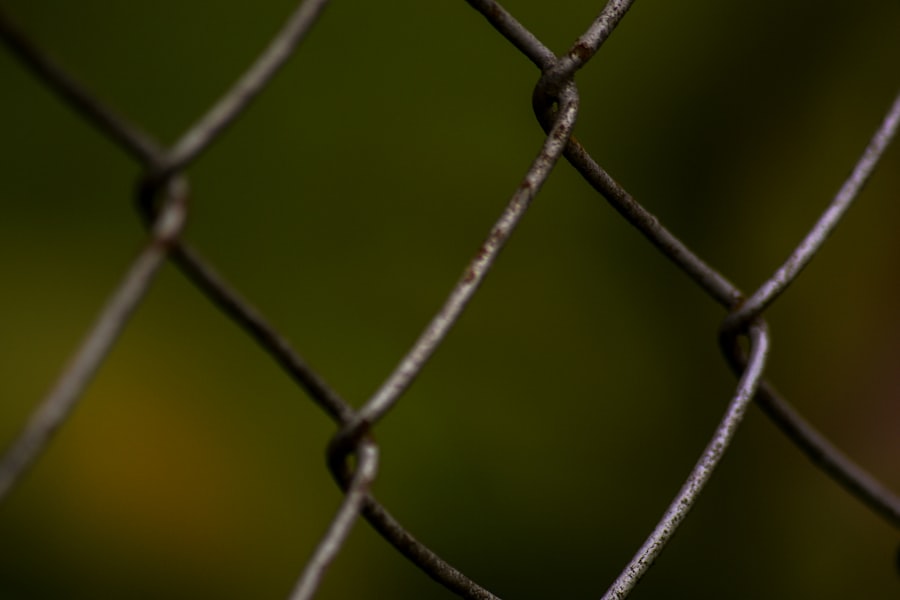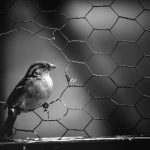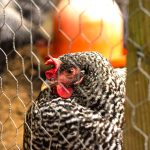Chickens are naturally curious and opportunistic creatures, often foraging for food in open areas. They are easily startled by sudden movements or loud noises. Understanding these behaviors is essential for developing effective strategies to deter them from unwanted areas.
Chickens are social animals and tend to follow the lead of dominant flock members. When one chicken discovers a new food source or safe area, the rest of the flock is likely to follow. Chickens also possess a strong homing instinct, returning to familiar areas, which necessitates consistent implementation of deterrent measures.
Known for their persistence and adaptability, chickens may require multiple approaches to find the most effective deterrent methods. It is important to recognize that chickens are not acting maliciously; they are simply following their natural instincts to find food and shelter. By understanding their behavior, it becomes easier to develop humane and effective strategies for keeping them away from unwanted areas.
Table of Contents
- 1 Creating Physical Barriers
- 2 Implementing Natural Deterrents
- 3 Utilizing Repellents
- 4 Providing Alternative Feeding Areas
- 5 Using Visual and Auditory Deterrents
- 6 Seeking Professional Assistance
- 7 FAQs
- 7.1 What are some effective ways to keep chickens out of mums?
- 7.2 Why is it important to keep chickens out of mums?
- 7.3 Are there any plants that can repel chickens from mums?
- 7.4 Can I use chicken wire to keep chickens out of mums?
- 7.5 What are some natural deterrents that can be used to keep chickens out of mums?
Key Takeaways
- Chickens are naturally curious and will explore their surroundings, including areas where they are not supposed to be.
- Physical barriers such as fences and netting can effectively keep chickens out of unwanted areas.
- Natural deterrents like predator decoys and reflective objects can help deter chickens from entering certain areas.
- Repellents such as sprays and powders can be used to discourage chickens from entering specific locations.
- Providing alternative feeding areas away from the desired location can help redirect chickens’ attention.
Creating Physical Barriers
Securing the Barriers
It’s important to ensure that the barriers are secure and tall enough to prevent chickens from flying or jumping over them. Additionally, burying the bottom of the barrier underground can help prevent chickens from digging underneath.
Alternative Methods
Another option is to use chicken wire or mesh to cover vulnerable plants or areas. This can be particularly effective for protecting seedlings or newly planted areas.
Maintenance and Limitations
It’s important to regularly inspect and maintain these barriers to ensure they remain effective over time. While physical barriers can be highly effective, they may not always be practical for larger areas or may not fit with the aesthetic of the space.
Implementing Natural Deterrents

Incorporating natural deterrents can be an effective way to discourage chickens from entering specific areas. One common natural deterrent is the use of predator decoys, such as fake owls or hawks. These decoys can create the illusion of a threat, causing chickens to avoid the area.
It’s important to regularly move these decoys around to prevent chickens from becoming accustomed to them. Another natural deterrent is the use of strong-smelling plants or herbs, such as lavender, mint, or rosemary. Chickens have a strong sense of smell and may be deterred by these scents.
Planting these herbs around vulnerable areas can help discourage chickens from foraging in those spaces. Additionally, incorporating prickly or thorny plants, such as rose bushes or holly bushes, can create a physical deterrent for chickens.
Utilizing Repellents
In addition to natural deterrents, there are also a variety of commercial repellents available that can help deter chickens from specific areas. These repellents often contain strong-smelling or bitter-tasting ingredients that are unpleasant for chickens. They can be sprayed directly onto plants or surfaces, creating a deterrent without causing harm to the chickens.
It’s important to carefully follow the instructions for these repellents and reapply them as needed, especially after rain or watering. While repellents can be effective, it’s important to consider their potential impact on other wildlife or pets in the area. Some repellents may not be suitable for use in areas where other animals frequent.
Providing Alternative Feeding Areas
One effective strategy for deterring chickens from specific areas is to provide alternative feeding areas. By offering a designated space for chickens to forage and access food, they may be less inclined to seek out other areas. This can be particularly effective in areas where chickens are causing damage to gardens or landscaping.
Creating a designated feeding area can be as simple as scattering feed or scratch grains in a specific location away from sensitive areas. It’s important to consistently provide food in this area to encourage chickens to return to it regularly. Additionally, incorporating features such as a covered feeding station or hanging feeders can help prevent other wildlife from accessing the food.
Using Visual and Auditory Deterrents

Visual Deterrents
Visual deterrents can be an effective way to keep chickens out of specific areas. One common method is to use reflective objects, such as old CDs or mirrors, which create flashes of light that may startle chickens and discourage them from entering an area. These objects can be hung or placed strategically around vulnerable areas.
Auditory Deterrents
Auditory deterrents, such as wind chimes or motion-activated sound devices, can also help deter chickens. These devices create unexpected noises that can startle chickens and encourage them to avoid specific areas.
Effectiveness and Maintenance
It’s important to regularly move these deterrents around to prevent chickens from becoming accustomed to them. This will ensure that the deterrents remain effective in keeping chickens out of unwanted areas.
Seeking Professional Assistance
In some cases, deterring chickens from specific areas may require professional assistance. This could include consulting with a wildlife expert or pest control professional who has experience with managing chicken behavior. These professionals can provide valuable insight and guidance on the most effective deterrent methods for specific situations.
Additionally, local agricultural extension offices or poultry organizations may offer resources and support for managing chicken-related issues. Seeking professional assistance can help ensure that deterrent methods are implemented effectively and in a way that is safe for both the chickens and the surrounding environment. In conclusion, deterring chickens from specific areas requires an understanding of their behavior and the implementation of effective strategies.
By creating physical barriers, incorporating natural deterrents, utilizing repellents, providing alternative feeding areas, and using visual and auditory deterrents, it is possible to discourage chickens from causing damage in unwanted areas. In some cases, seeking professional assistance may be necessary to develop the most effective deterrent methods. With careful planning and consistent implementation, it is possible to manage chicken behavior in a humane and effective manner.
If you’re looking for more information on keeping chickens, you might be interested in this article on how many chickens you need for a family of 4. It provides helpful tips on determining the right number of chickens for your family’s egg needs and the space required to keep them happy and healthy.
FAQs
What are some effective ways to keep chickens out of mums?
Some effective ways to keep chickens out of mums include using physical barriers such as fences or netting, using natural deterrents like citrus peels or coffee grounds, and providing alternative areas for the chickens to forage.
Why is it important to keep chickens out of mums?
It is important to keep chickens out of mums to protect the plants from being trampled, scratched, or eaten by the chickens. Additionally, chickens can spread diseases and pests to the mums if they are allowed to roam freely in the garden.
Are there any plants that can repel chickens from mums?
Plants such as marigolds, lavender, and rosemary are known to repel chickens and can be planted around mums to help keep chickens away.
Can I use chicken wire to keep chickens out of mums?
Yes, chicken wire can be an effective physical barrier to keep chickens out of mums. It can be placed around the mums or used to create a small fenced area to protect the plants.
What are some natural deterrents that can be used to keep chickens out of mums?
Natural deterrents such as citrus peels, coffee grounds, or cayenne pepper can be sprinkled around the mums to discourage chickens from foraging in the area. These items are unpleasant to chickens and can help keep them away from the plants.
Meet Walter, the feathered-friend fanatic of Florida! Nestled in the sunshine state, Walter struts through life with his feathered companions, clucking his way to happiness. With a coop that’s fancier than a five-star hotel, he’s the Don Juan of the chicken world. When he’s not teaching his hens to do the cha-cha, you’ll find him in a heated debate with his prized rooster, Sir Clucks-a-Lot. Walter’s poultry passion is no yolk; he’s the sunny-side-up guy you never knew you needed in your flock of friends!







